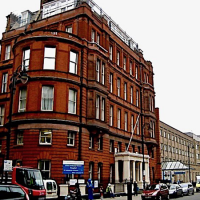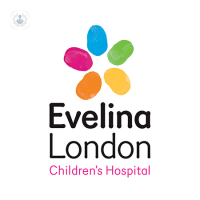Chest pain in children
Dr Nitha Naqvi - Paediatric cardiology
Created on: 11-07-2017
Updated on: 06-28-2023
Edited by: Jay Staniland
What is chest pain in children?
Chest pain in children can be described as a pain in the child’s chest, in the area around the heart and could have numerous causes from stress, to a muscle injury or a viral infection and in rare instances a heart condition. The pain may be moderate or severe and can occur with activity or without. Children often complain that their “heart hurts”.
If your child complains about pain in their chest, it is recommended to see your family doctor or a paediatric specialist.

What are the symptoms of chest pain in children?
Your child might feel pain, discomfort and tightness in their chest. Other symptoms might include fatigue, nausea and a lack of appetite.
Costochondritis (inflammation in the joint between the breastbone and the ribs) can be felt as a sharp pain, usually felt on the left side of the breastbone. The pain gets worse with deep breaths, coughing or on moving the upper body upwards.
Costochondritis is usually felt in only a small area of the chest and comes from where the breastbone meets the ribs.
How is chest pain in children diagnosed?
There is no single medical history question or test that can determine the source of a child’s chest pain, however, if your child is experiencing chest pain that won’t go away and has difficulty breathing, take them to a a doctor or the hospital right away. Chest pain is rarely serious, but sometimes immediate medical attention is necessary.
To diagnose costochondritis, the doctor will feel for tenderness where the breastbone and ribs meet and ask a series of questions regarding the child’s symptoms. A chest X-ray may be arranged to rule out any infection or pneumonia.
What causes chest pain in children?
Chest pain in children can be caused by a number of things, including:
- viral illness which can lead to chest pain from excessive coughing
- musculoskeletal pain
- injury from an activity or a fall
- costochondritis; inflammation in the joint between the breastbone and the ribs caused by a virus or frequent coughing
- in rare cases, a heart condition or heart disease
chest pain associated with heart disease will be severe and warrant immediate medical attention or may be progressive but with other symptoms like fainting or extreme fatigue. Sudden and severe chest pain is most often caused by pericarditis, an inflammatory condition of the heart that can lead to serious complications if not treated.
How is chest pain in children treated?
Depending on the cause, chest pain will be treated differently. If the cause is costochondritis, then prescription anti-inflammatories can be used to treat the pain. Usually, costochondritis goes away on its own after a few days, but can sometimes last weeks or a few months.
If stress is causing your child’s chest pain, due to school pressure or recent trauma, visiting a counsellor or making an appointment with a cognitive behavioural therapist can help your child deal with their stressful emotions.
If the cause is related to the heart, as is the case with pericarditis, this will need to be treated by a paediatric cardiologist.











